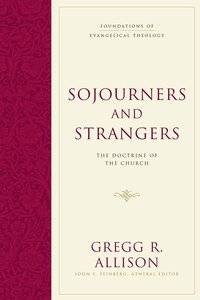If you’re looking for a few ideas for last second Christmas money/gift card redemption, here’s a few ideas. You can also check out my past lists: 2015 and 2016 lists at my old Patheos blog, and my 2017, 2018, 2019, 2020, and 2021 lists posted here at Biblical Reasoning.
Please forgive my shameless plug upfront, but beyond these five fantastic books below, I have two books to briefly plug:
- Out tomorrow(!) is an academic monograph with IVP Academic entitled The Trinity in the Book of Revelation, which brings together pro-Nicene retrieval and engagement with modern biblical scholarship. Order here.
- Out in May, you can preorder my next book with Lexham Press entitled The Biblical Trinity, which is an introductory book to the Trinity in Scripture for pastors and thoughtful laypeople. Order here.
Thanks for considering! And now, in no particular order, here are my five favorite books that I read in 2022.

Hermeneutics and the Rhetorical Tradition by Kathy Eden
This book was recommended to me by several friends as a necessary read for working in early Christian theology and exegesis, and I see why. It is an excellent introduction to the larger contextual influences on early reading cultures and their intersection with/influence on early Christian writings. Order here.

The Trinity by Thomas Joseph White
I simply do not have enough superlatives for this book. Just read it and reference it over and over. Listen to our conversation on tough Trinity questions here. Order here.

Jesus Becoming Jesus (vol. 2) by Thomas G. Weinandy
This three-volume series (see also: vol. 1 and vol. 3) is a treasure trove of theological interpretation of the Gospels. Aside from Jesus himself, of course, Weinandy’s prose is the star of this book. I devoured each volume rather quickly due to how effortlessly Weinandy blends beautiful writing with deeply engaging insights, but I especially enjoyed volume 2. I’ll be revisiting these often. Listen to our conversation on the trilogy here. Order here.

Post-Hellenistic Philosophy by G. R. Boys-Stones
This book is not an easy read, but well organized and gets straight to the point regarding the major philosophical developments in and around early Christianity. The discussion toward the end on Christian appropriations of philosophy is worth the price of the book. Order here.

Sprawlball by Kirk Goldsberry
I know everyone tells me to read more fiction, but I typically reserve my “free time” reading for sports books. I really enjoyed this one on the evolution of the modern NBA game by Kirk Goldsberry, a pioneer in NBA advanced analytics. Order here.

















 The biblical definition of “kingdom” has long been debated. A classic evangelical view taught to me in grad school was George Eldon Ladd’s: the kingdom is God’s sovereign rule. Others have pushed a more social kingdom, arguing that God’s kingdom exists anywhere that social justice is being practiced. Of course, both of these definitions represent two extreme poles.
The biblical definition of “kingdom” has long been debated. A classic evangelical view taught to me in grad school was George Eldon Ladd’s: the kingdom is God’s sovereign rule. Others have pushed a more social kingdom, arguing that God’s kingdom exists anywhere that social justice is being practiced. Of course, both of these definitions represent two extreme poles.




